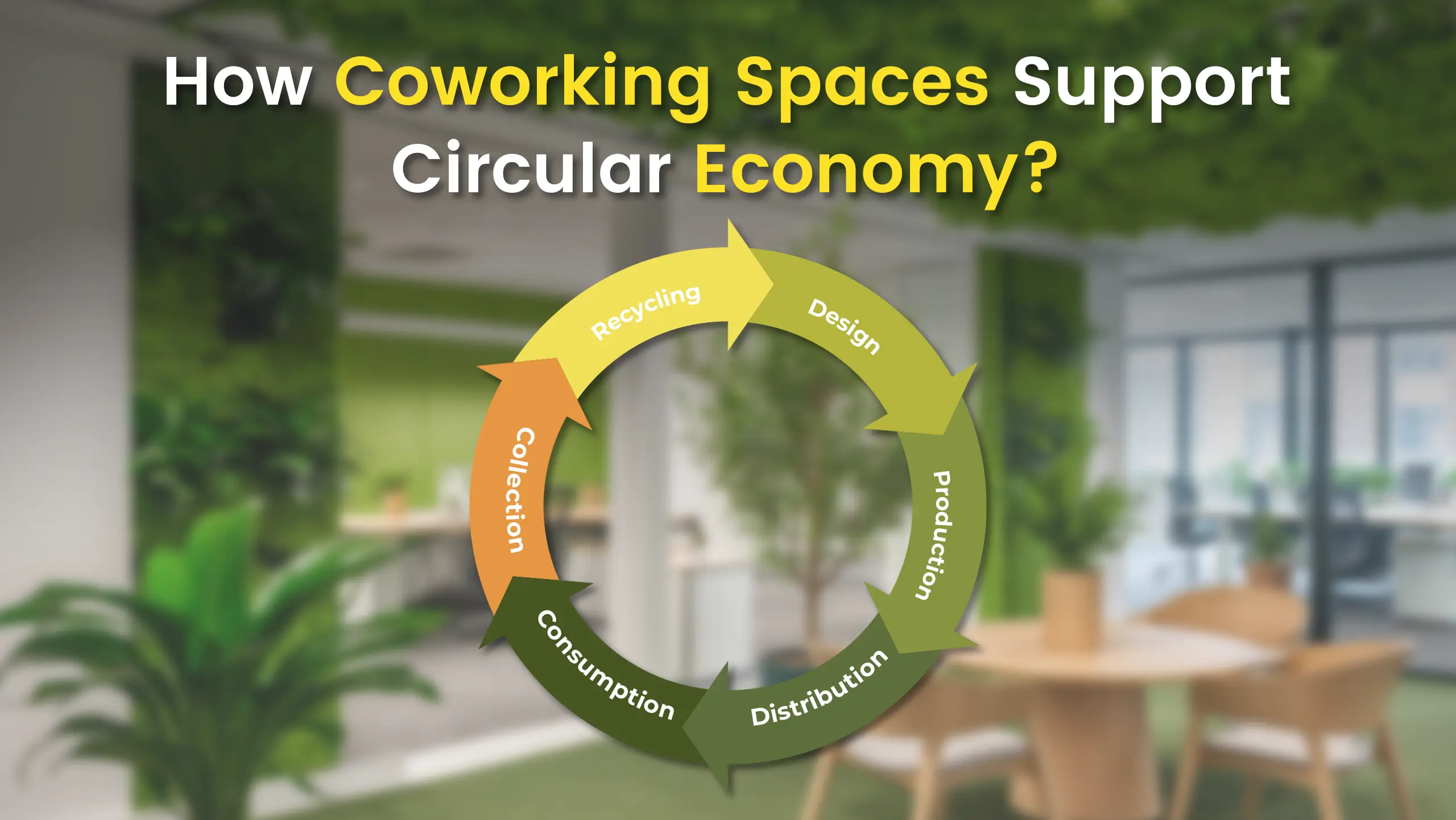The traditional linear model of “take, make, dispose” is becoming unsustainable, both environmentally and economically. As natural resources dwindle and the environmental impacts of waste become more pressing, businesses are increasingly looking toward more sustainable practices like using coworking spaces and adopting more environment-friendly resources for daily operations. The circular economy presents a compelling alternative. By focusing on reducing waste, reusing materials, and regenerating natural systems, the circular economy transforms waste into opportunity—providing significant business advantages in the process.
What is a Circular Economy?
The circular economy is a system of resource management that keeps materials in use for as long as possible, extracts maximum value from them while in use, and then recovers and regenerates products and materials at the end of their lifecycle. This approach moves away from the traditional linear economy, where goods are produced, consumed, and then discarded. Instead, it emphasizes redesigning products and processes to minimize waste, encouraging reuse, and recycling materials into new products. Hence, coworking spaces utilize sustainable materials like plants and furniture for their interior design, implementing energy-efficient systems and devices, reducing water consumption and waste generation, encouraging sharing, reuse, and repair of equipment, tools, and supplies among the users.
Benefits of a Circular Economy for Coworking Spaces
A circular economy in coworking spaces promotes sustainability by reducing waste and maximizing resource efficiency. Instead of disposable or single-use products, coworking spaces can adopt practices like furniture sharing, recycling, and energy conservation. By reusing materials and reducing energy consumption, these spaces lower their environmental impact and operational costs. Additionally, a circular economy encourages collaboration, as members share resources like printers, meeting rooms, and even ideas. This model not only benefits the environment but also fosters a culture of sustainability, making the coworking space more attractive to eco-conscious businesses and individuals.
1. Cost Efficiency
At TRIOS Coworking, cost efficiency is a key benefit for businesses and professionals alike. By embracing sustainable practices aligned with the principles of a circular economy, we help reduce operational expenses while maximizing the use of shared resources. Our eco-friendly space minimizes the need for costly infrastructure investments, offering you a fully equipped environment at a fraction of the cost of traditional office setups. With flexible membership options and a focus on resource optimization, TRIOS helps you save on overhead, ensuring your business can thrive without the unpredictable costs of maintaining a private office.
2. Innovation and Competitive Advantage
The shift to a circular economy drives innovation by encouraging companies to rethink product design, production methods, and business models. New opportunities for product differentiation emerge when businesses design goods with longevity, modularity, and recyclability in mind. Companies that adopt circular models early can gain a competitive edge by aligning with customer preferences for sustainable products. In an increasingly eco-conscious marketplace, businesses that demonstrate environmental stewardship stand out.
3. Regulatory and Compliance Readiness
As governments around the world implement stricter environmental regulations, adopting a circular economy approach can help businesses stay ahead of regulatory changes. Companies that embrace circular principles are better positioned to meet compliance requirements related to waste reduction, emissions, and resource efficiency. Being proactive in sustainability can also enhance a company’s reputation and reduce the risk of regulatory penalties or fines.
4. Enhanced Brand Reputation and Customer Loyalty
Consumers are more environmentally aware than ever before. They are choosing brands that prioritize sustainability and ethical practices. Businesses that adopt a circular economy model demonstrate a commitment to reducing environmental impact, which can strengthen their brand reputation. Furthermore, customers tend to be more loyal to companies that align with their values, leading to long-term business growth through repeat customers and increased word-of-mouth promotion.
5. Access to New Revenue Streams
Consumers are more environmentally aware than ever before. They are choosing brands that prioritize sustainability and ethical practices. Businesses that adopt a circular economy model demonstrate a commitment to reducing environmental impact, which can strengthen their brand reputation. Furthermore, customers tend to be more loyal to companies that align with their values, leading to long-term business growth through repeat customers and increased word-of-mouth promotion.
A Path Forward
Transitioning to a circular economy is not just a matter of corporate social responsibility—it is a strategic business decision. As resources become scarcer and consumers demand more sustainable practices, businesses that embrace circularity will be better equipped to thrive in the future. The circular economy not only helps reduce environmental harm but also fosters innovation, reduces costs, enhances customer loyalty, and opens up new revenue streams.
In a world where waste is increasingly recognized as a valuable resource, the business case for adopting a circular economy is stronger than ever. In coworking spaces, utilizing resources repeatedly—such as furniture, office supplies, and equipment—significantly reduces waste and enhances sustainability. By implementing strategies like furniture sharing, repurposing materials, and offering repair services, coworking spaces can minimize resource consumption while maximizing utility. Those who effectively turn waste into opportunity today will position themselves as leaders in the market of tomorrow, demonstrating that sustainability is not just an ethical choice but a smart business strategy.
Conclusion
Adopting a circular economy in coworking spaces presents a strategic approach to sustainability that goes beyond environmental benefits. It reduces waste, lowers operational costs, and opens up new revenue opportunities, while enhancing brand reputation and customer loyalty. By fostering a culture of resource sharing, reuse, and innovation, coworking spaces can position themselves as leaders in an increasingly eco-conscious marketplace. As the demand for sustainable practices grows, businesses that embrace circular principles will not only reduce their environmental footprint but also gain a significant competitive edge in the market. Transitioning to a circular economy is more than a trend—it’s a long-term strategy for success.
Pratik Potnis is the Founder and CEO of TRIOS Coworking Space. With over a decade of entrepreneurial experience and a strong business network, he has helped 200+ companies with his world-class coworking space services including Microsoft and Dunzo. At Trios, Pratik ensures all the operations are streamlined and aligned to business growth. He is well-versed in business forecasting and generating strategies for innovation and sales.You may connect with him on LinkedIn, Twitter, and Facebook.




